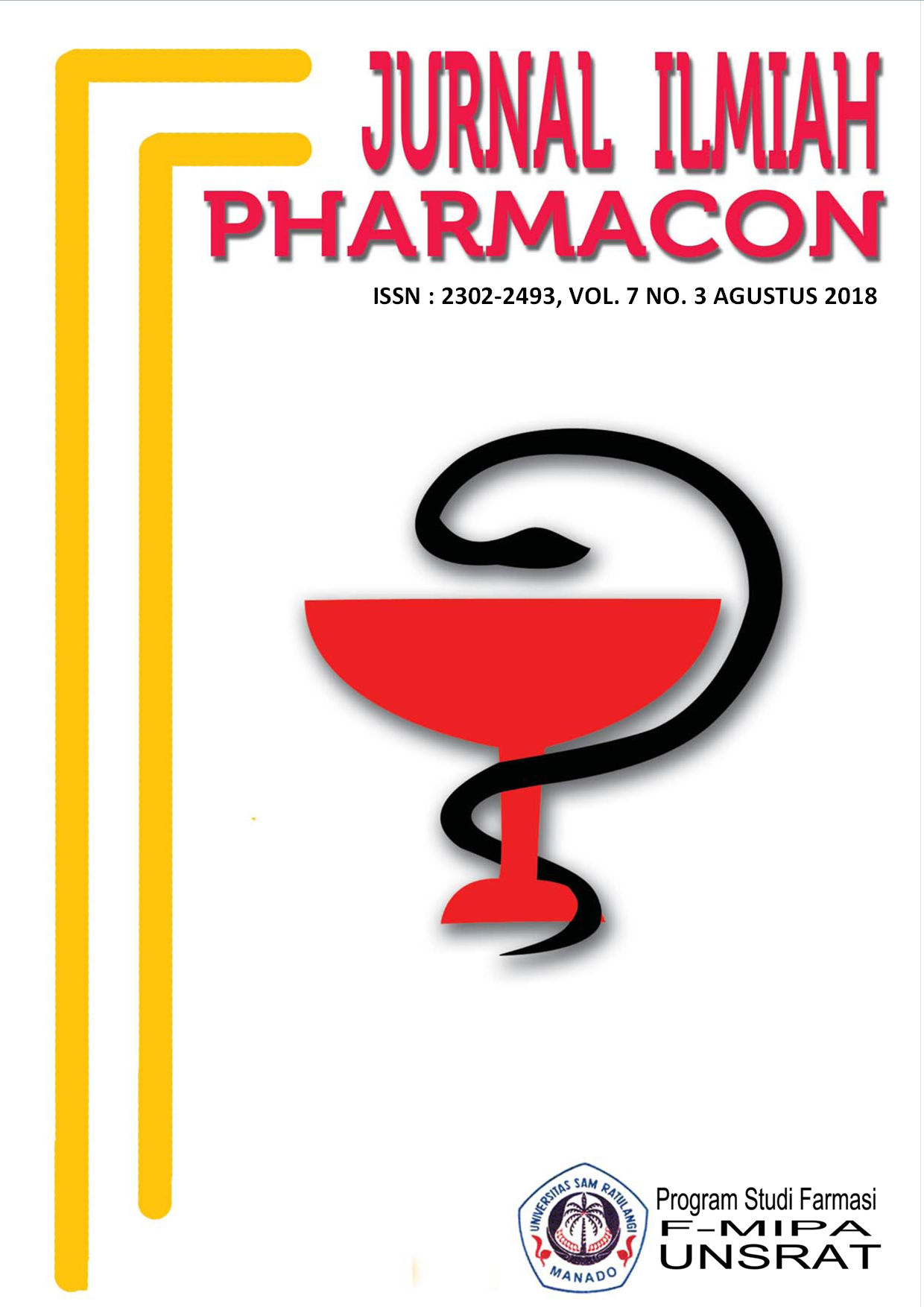KARAKTERISTIK ORGANOLEPTIK TERASI BAKASANG DARI JEROAN IKAN CAKALANG (Katsuwonus pelamis)
DOI:
https://doi.org/10.35799/pha.7.2018.20504Abstract
KARAKTERISTIK ORGANOLEPTIK TERASI BAKASANG DARI JEROAN IKAN CAKALANG (Katsuwonus pelamis)
Putri A. Kaurong1), Feti Fatimah1), Harry Koleangan1)
1)Jurusan Kimia FMIPA UNSRAT Manado, 95115
ABSTRACT
The research has been done about Organoleptic from terasi (Indonesian original paste) of fish sauce made from skipjack fish (Katsuwonus pelamis) . With 10 and 15 days fermentation time , 20% salt content and terasi’s storage time was 5 and 10 days. The best organoleptic value of terasi is made from a combination of 15 days of Fish sauce fermentation, the value given is 7.80 appearance, smell 7.60, taste 7.60 and texture 8.80. These values have been agreed with SNI No. 2716: 2016
Keywords: skikpjack fish, terasi, organoleptic
ABSTRAK
Telah dilakukan penelitian organoleptik dari terasi bakasang yang dibuat dari jeroan ikan cakalang (Katsuwonus pelamis). Waktu fermentasi bakasang adalah 10 dan 15 hari dengan kadar garam 20% dan waktu simpan ter4asi adalah 0,5 dan 10 hari. Nilai Organoleptik terasi bakasang yang paling baik adalah terasi yang dibuat dari bakasang 15 hari fermentasi, nilai yang diberikan adalah Kenampakan 7.80, Bau 7.60, Rasa 7.60 dan tekstur 8.80. Nilai-nilai tersebut sudah sesujai dengan SNI No. 2716:2016
Kata kunci: ikan cakalang, terasi, organoleptik
Â
Downloads
Published
How to Cite
Issue
Section
License
Authors who publish with this journal agree to the following terms:
- Authors retain copyright and grant the journal right of first publication with the work simultaneously licensed under a Creative Commons Attribution-NonCommercial 4.0 International License that allows others to share the work with an acknowledgement of the work's authorship and initial publication in this journal.
- Authors are permitted and encouraged to post their work online (e.g., in institutional repositories or on their website) prior to and during the submission process, as it can lead to productive exchanges, as well as earlier and greater citation of published work (See The Effect of Open Access)










